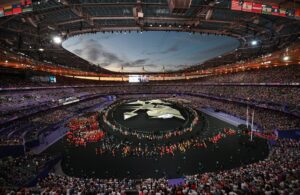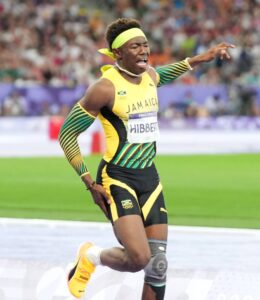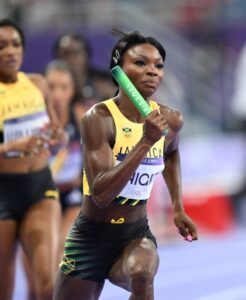Organisers scrap Olympic open water training in polluted Seine
PARIS, France (AFP) — Paris Olympics organisers said Tuesday that training for open water swimming in the River Seine had been cancelled due to pollution, raising questions over why triathletes were allowed to use the waterway the day before.
The decision — the fifth time organisers have scrapped training in the river since the start of the Games on July 28 — is likely to frustrate competitors who must get used to the Seine’s strong currents.
A statement from World Aquatics and the organising committee early on Tuesday said that one out of four readings for enterococci bacteria in the river — an indicator of the presence of faecal matter — was above the upper authorised limit.
“This decision [to cancel training] has been taken out of an abundance of caution, especially given that another familiarisation swim is scheduled for the following day, August 7,” it said.
Ever since it was chosen as a location for the triathlon and marathon swimming, French authorities have been in a race against time to clean up the waterway.
The triathlon was badly disrupted by poor bacterial readings last week, with all swim training sessions cancelled and the men’s individual race postponed by 24 hours until Wednesday.
A mixed relay race also looked in doubt on Monday but eventually took place on schedule, with Germany clinching gold in a thrillingly close race that saw the US and Britain win silver and bronze medals.
The marathon swimming — a 10km race in open water — is set to take place on Thursday for women and Friday for men.
The Paris 2024 organising committee suggested that the triathlon race went ahead on Monday while marathon swimming training was cancelled on Tuesday because the two sports are overseen by different governing bodies, World Triathlon and World Aquatics.
Organising committee spokeswoman Anne Descamps told reporters that World Triathlon gave its approval for Monday’s race on the basis that bacteria levels were trending downwards and it is “willing to factor in forward-looking analysis.”
The results of water tests were shared with triathletes before Monday’s race, including one enterococci reading that was above limits, and none of them raised any objections, the organising committee explained.
Several triathletes have expressed frustration about the repeated training cancellations and the suspense about whether their races would go ahead.
The Belgian team did not race in the mixed relay on Monday after their athlete Claire Michel fell sick, reportedly with E.Coli, having swum in the Seine during the women’s individual triathlon last Wednesday.
“The COIB (Belgian National Olympic Committee) and Belgian Triathlon hope that the lessons will be learned for future triathlon competitions at the Olympics,” the committee said in a statement.
Both the Swiss and Norwegian teams were disrupted by illnesses that saw their athletes suffer stomach upsets after swimming in the Seine last week, but neither made a direct link to water quality problems.
“I was sick for about 12 hours, overnight from Friday to Saturday,” Norway’s Vetle Bergsvik Thorn told AFP. “I don’t know if it was food poisoning or from the Seine.”
Other triathletes have defended using the Seine, saying they have not been affected and are used to swimming in far more polluted water courses.
“No-one was afraid to jump in. We were all happy to have a race,” German Tim Hellwig, who won gold on Monday during the team event, told reporters.
“If, like, 99 per cent of the athletes don’t have any problems, I think it’s fine,” he said.
Organisers have said that marathon swimming can be moved to another location in Vaires-sur-Marne on the River Marne east of Paris if the Seine is too polluted to use.
They said Tuesday they were “very confident” that the men’s and women’s events would take place in the Seine.






